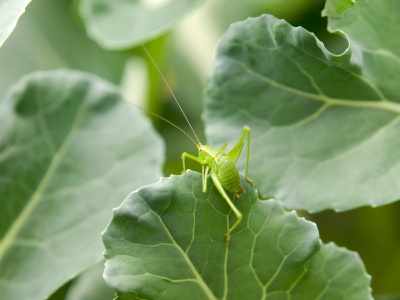
reference-image, l
(article, Deborah Madison)
[%pageBreakSettings nobreak=true] Vegetarians have been around for a very long time, but friends of mine have often scoffed that vegetarianism is a phenomenon of modern times and our penchant for shopping at supermarkets. I’m starting to see this point of view a little more clearly as a result of my efforts to grow something edible from seed. This is not the first time I’ve had a garden, but somehow it seems to count more this year. I really do want to be able to eat from it. [[block(sidebar). h1.Featured recipe]] What I’m learning is that if it’s to be more than an idle hobby to grow my food, I have to fight for my squash (and potatoes, tomatoes, and peppers) and everything else that grows. It’s quite an effort to grow even the one vegetable that is the butt of so many jokes about its excesses: zucchini. I am eating my harvest with something like reverence and awe. Spring and early summer in New Mexico were cold this year, and then it got extremely hot. Drought has been accompanied by lettuce-wilting, tree-felling winds that shredded all my shade-giving squash leaves to ribbons. I planted beans three times, but as soon as they sent up little green sprouts, some hungry kangaroo rat, squirrel, or mouse scooped them out of the ground. I planted that easy grower, chard, three times as well, but as soon as the seeds went into the ground, something came in the night and dug right where I’d planted. [%image reference-image float=right width=400 caption="A grasshopper climbing a broccoli leaf."] Surely it can’t be chard seeds they are after, but nevertheless, their activities pretty much put an end to what would be chard beds. My friend Jean Pierre, who for the most part lives off of what he grows year-round, reports the same mysterious failure with beans and other vegetables this year. He has given up his summer harvest and now watches the deer and the rabbits dine al fresco at his expense while the grosbeaks drink from his pinot grapes. (If we did actually live on what we harvest, we would all most certainly be thin!) Despite all the setbacks, I — like most gardeners I know — am driven to keep trying. While our efforts are much appreciated by creatures who are short of food themselves, our goal is to be able to feed ourselves, after all. Besides bad weather and marauding animals, bugs — especially grasshoppers and squash bugs — are a major problem. In my garden, the grasshoppers have demolished potato greens and large sage plants; they’ve nibbled on lovage and the tattered squash leaves. In fact, they pretty much feast upon whatever stands in their path. They hop into my office and onto my desk; I’ve even had one hop into bed while I’m reading. These jerky insects are unsettling, especially when they join our indoor lives, but they’re not nearly as repulsive as squash bugs. Just about the time you’re feeling proud of your squash plants, you reach down to pick a shiny zucchini for dinner, and you see two big squash bugs, joined end to end, preparing to lay vast numbers of eggs. This is the beginning of the end. Even a few of these bugs are off-putting, but when they become plentiful and multiply they become deeply repulsive. And there are just too many of them! Finally, they reach a point when they’ve gotten the better of your once-promising plants, which is when you will probably decide to leave the food-growing to the professionals and vow never to question paying a dollar for two zucchini. In the past I’ve taken this invasion of insects lying down, but not this year. I raised these plants from seed; I dug special beds for them; and I intend to harvest them, by golly. But this means that I go out each morning and examine the leaves and stems. If I see eggs, I squish them. If I see bugs, well, I’ve learned to squish them, too. (I hate this!) I also spray an organic killer on the eggs so that they won’t hatch, but it’s easy to miss a clutch. When they do hatch, armies of tiny gray squash bugs emerge. They all have six legs, and they scatter helter-skelter in search of their first squash meal. I have to ask, “Why so many offspring?” They are creepy, no doubt about it, and I’m a person who generally doesn’t flinch at encounters with insects and snakes. So when people say they’re vegetarian because they can’t eat something with a face — usually a lamb or another soulful animal — I wonder if they’ve really considered the critters who vied and died for their zucchini. They’re not cute, and they’re a lot harder to relate to than a cow, but they are every bit as determined to live as you and I are. That squash at the supermarket only looks innocent of the slaughter that its very existence generates. As far as I can tell, gardening requires a certain amount of war and death as well as life. There is no lunch that’s free from harm. But I’m hoping I’ll get scads of comments from people who say that in good gardening these problems don’t arise, that my soil is out of whack or something, and that there are solutions to the squash-bug problem, other than the ones I know. Solutions that work, that is! p(bio). Deborah Madison is the author of numerous award-winning cookbooks, including Local Flavors. She lives in New Mexico.

reference-image, l